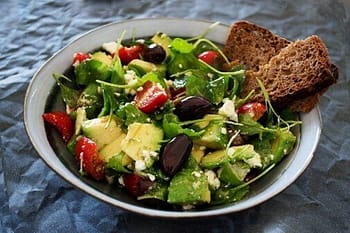
Introduction:
Starting a weight reduction journey may be a life-changing event that results in better health and more vigor. While exercise is unquestionably essential, your food is the cornerstone of any effective weight reduction plan. Your weight reduction success may be accelerated or hampered by the foods you choose to eat. This comprehensive guide will delve deep into nutrition, unveiling the best foods for weight loss and shedding light on the science behind their effectiveness.
Understanding the Dynamics of Weight Loss

Before we explore the foods that promote weight loss, let’s briefly examine the principles that govern effective weight management:
Caloric Balance: You must create a caloric deficit to shed excess pounds. In doing so, you force your body to use its energy-dense fat reserves by ingesting fewer calories than you burn.
Nutrient Density: Opt for foods rich in essential nutrients but relatively low in calories. Nutrient-dense foods provide vitamins, minerals, and fiber, contributing to overall health.
Satiety: foods that keep you full and satisfied, preventing overeating and unhealthy snacking.
Balanced Diet: Maintain a balanced diet that incorporates a variety of foods from all food groups. Avoid extreme diets that eliminate entire food groups, as they are often unsustainable and may lead to nutrient deficiencies.
Now, let’s embark on a journey to discover the best foods for supporting your weight loss efforts.
The Power of Plant-Based Foods
Vegetables: The Cornerstone of Weight Loss
Vegetables are the unsung heroes of a weight loss diet. They are brimming with vitamins, minerals, antioxidants, and dietary fiber while being low in calories. Incorporate diverse, colorful vegetables into your meals, such as spinach, kale, broccoli, bell peppers, and carrots. Leafy greens like spinach and kale are exceptionally nutrient-dense and can be included in salads, smoothies, and stir-fries.
Fruits: Nature’s Sweet Delights
Fruits, while containing natural sugars, offer a plethora of vitamins, minerals, and fiber. Enjoy a variety of fruits in moderation, including berries, apples, oranges, and pears. Berries, in particular, are low in calories and high in antioxidants.
The Protein-Packed Prowess
- Lean Proteins: The Foundation of Satiety
Lean protein sources are the linchpin of a successful weight loss diet as they enhance satiety and preserve lean muscle mass. Include the following sources in your diet:
Chicken breast: Chicken breasts without the skin or bones are a lean protein powerhouse.
Fish: Fatty fish like salmon, mackerel, and trout provide omega-3 fatty acids, aiding weight loss efforts.
Tofu: A versatile plant-based protein source, tofu is suitable for vegetarians and vegans.
Legumes: Beans, lentils, and chickpeas are rich in protein and fiber, keeping you full and satisfied.
The Wholesome Grains
- Whole Grains: Complex Carbohydrates for Sustained Energy
Whole grains are replete with fiber, which promotes stable blood sugar levels and satiety. Opt for whole grains like:
Quinoa: A complete protein source and high in fiber.
Brown rice: An improved rice option that is more nutrient- and fiber-rich than white rice.
Oats: Rich in soluble fiber, keeping you full for longer.
Whole wheat: Choose whole wheat bread and pasta over refined versions for added fiber.
Embracing Healthy Fats
- Healthy Fats: Fuel for Weight Loss
Contrary to the misconception that fats should be avoided, healthy fats play a pivotal role in weight loss. Incorporate these sources into your diet:
Avocado: Brimming with monounsaturated fats, avocados provide creamy goodness and satiety.
Nuts: Almonds, walnuts, and pistachios are rich in healthy fats and protein.
Olive oil: Use extra virgin olive oil as your primary cooking oil for its heart-healthy properties.
Protein Powerhouses
- Greek Yogurt: The Protein-Packed Delight
Greek yogurt is a protein-rich superstar, offering probiotics that aid digestion and support weight loss. Opt for plain, low-fat Greek yogurt, and add fresh fruit or a drizzle of honey for a delightful touch.
Eggs: The Breakfast Boost
Eggs are a nutritional powerhouse, providing protein and essential nutrients. Eating eggs for breakfast can help you manage your appetite and consume fewer calories during the day.
The Metabolism-Boosting Beverages
Green Tea: A Sip for Weight Loss
Green tea contains catechins, which may boost metabolism and increase fat burning. Enjoy a cup of green tea as part of your daily routine.
Hydration and Weight Loss
Water: The Elixir of Weight Loss
- Adequate hydration is often overlooked in weight loss strategies. Sometimes, thirst can be mistaken for hunger. Before meals, having a glass of water can increase satiety and lower calorie consumption.
- Staying well-hydrated also supports overall bodily functions and metabolism.
- The Guilt-Free Indulgence
Dark Chocolate: A Sweet Treat for Weight Watchers
Believe it or not, dark chocolate with at least 70% cocoa content can satisfy sweet cravings while providing antioxidants and potential benefits for weight loss.
Portion Control: The Key to Success
Portion management is essential for weight reduction and making the proper meal choices. Here are some strategies to help you master it:
Mindful Eating: Pay attention to your food while eating, savor each bite, and eat slowly. This can help you recognize when you’re full and prevent overeating.
Use Smaller Plates: Opt for smaller plates and bowls to control portion sizes naturally.
Pre-Portion Snacks: When snacking on nuts or dried fruit, portion them out in advance to avoid mindless munching.
Building a Sustainable Approach
Weight reduction is more than simply calculating calories; it is also about eating in a sustainable and balanced manner. Here are some additional tips for achieving lasting success:
Meal Planning: Plan your meals and snacks to ensure you have access to healthy alternatives.
Regularly eating and skipping meals can lead to overeating later in the day.
Moderation: Enjoy indulgent treats in moderation rather than depriving yourself completely.
Stress Management: High-stress levels can lead to emotional eating. Incorporate stress-reduction techniques like yoga or meditation into your routine.
Seek Support: Consider seeking the help of a qualified dietitian or nutritionist who can give specialized advice on your weight reduction quest.

Summary of this article:
Losing weight and achieving a healthier lifestyle involves more than simply reducing calories. It’s about making informed, balanced, and sustainable choices that nourish your body and promote well-being. You can embark on a successful weight-loss journey while enjoying a varied and satisfying menu by incorporating nutrient-dense foods like vegetables, lean proteins, whole grains, healthy fats, and fruits. Remember that consistency and balance are critical, and it’s essential to tailor your dietary choices to your individual needs and preferences. With the right approach and commitment, You may accomplish your weight reduction objectives and start a lifelong path toward a healthy you with the appropriate mindset and dedication.



